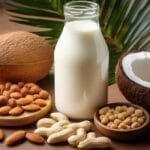Ashu’s Curiosity
Every year when winter approaches, Ashu’s mother focuses on preparing different winter foods that are healthy and strengthen the immunity of the family.
Many of these winter season foods have been prepared by her since Ashu was a toddler.
Not only dishes, Ashu’s mother also has selected certain winter fruits and vegetables that should be eaten by every person to strengthen the immune system during winter.
Ashu needs to know about healthy foods for winter that can keep the body warm and positively affect immunity.
He is again searching on Know Ur Diet about winter foods and let us see what he finds:
What are Winter Foods?
In general terms, winter season foods are those foods or recipes that are specifically prepared or available during the winter season.
This is due to their nutritional content or natural effect on the human body. For instance, during winter these foods provide required antioxidants to boost the immune system. Winter is a season that makes you vulnerable to infections. You need foods that can shield your body from these illnesses.
There is no universal list of such foods as every country and region has different food crops during winter for example, cranberry is widely consumed in the USA during winter but it is rarely available in Indian markets.
Following is the list of 12 Indian winter foods that anyone should eat to boost immunity and keep the body warm:
13 Healthy Foods for Winter
Here is a list of 13 such foods that are considered great options to be eaten during the winter season to provide the required warmth to your body.
Carrot
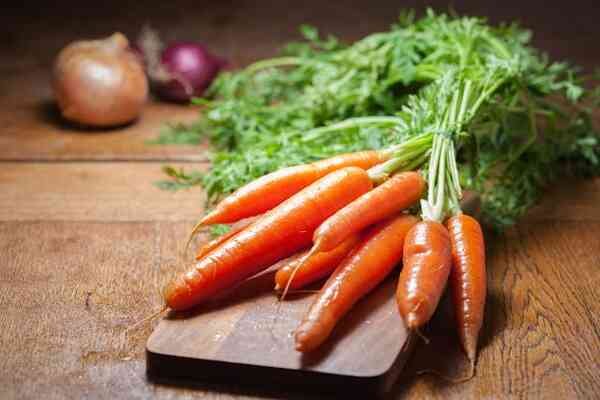
Carrot is a root vegetable that is widely consumed throughout India as a winter vegetable to boost immunity and get other health benefits. Similar to Sweet Potato, Carrot also has a sweet flavour due to the presence of natural sugars like Sucrose and Fructose.
In terms of Nutritional value, Carrot is loaded with a lot of them. A single serving of Carrot can provide you with 73% of your whole day Vitamin A needs, 9% of Vitamin K needs and 5% of Vitamin C needs. Carrot also carries a lot of antioxidants that can strengthen your immunity.
Here are some recipes of Carrot that you can enjoy in this winter season:
| Recipes | Calories per serving |
|---|---|
| Gajar Ka Halwa | 328 kcal |
| Carrot Ginger Soup | 100 kcal |
| Carrot and Cucumber Salad | 79 kcal |
| Carrot Juice | 93 kcal |
| Carrot Barfi | 98 kcal |
Radish

Radish or Daikon is a staple food of the winter season. It is preferably used in preparing side dishes such as salads and soups. Cylindrical in shape and have white flesh, radish is a great winter superfood that can provide you with all essential nutrients.
Radish carries nutrients like Vitamin C & B6, Potassium, calcium and Iron. It also has antioxidants like Riboflavin, Thiamine, Niacin and Folate. Eating radishes has multiple health benefits including anti-inflammatory and anti-fungal properties.
Here are some recipes for Radish that you can include in your meal plan:
| Recipes | Calories per Serving |
|---|---|
| Mooli Paratha | 78 kcal |
| Mooli Thepla | 100 kcal |
| Mooli Bhurji | 127 kcal |
| Moong Dal with Mooli | 123 kcal |
| Summer Radish Salad | 188 kcal |
Mustard Greens
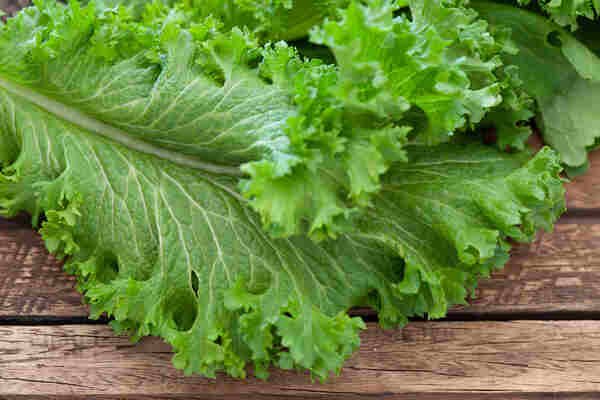
Mustard Greens or Sarson is a winter delicacy that is high in nutritional value and can provide you with several health benefits. This particular food is rich in vitamins A, C & K along with other important nutrients.
Sarson is widely used in preparing various Punjabi dishes and sarson ka saag is a popular curry that is especially eaten during winter. Sarson or mustard greens have a lot of phytonutrients that can prevent damage to cells from free radicals.
Here are some delicious Mustard green dishes you can add to your meal:
| Recipes | Calories per serving |
|---|---|
| Mustard Greens & Beans | 136 kcal |
| Sarson Da Saag | 242 kcal |
| Pickled Mustard Greens | 138 kcal |
| Mustard Greens Soup with Spinach | 129 kcal |
| Mustard Greens Salad | 139 kcal |
Green Peas
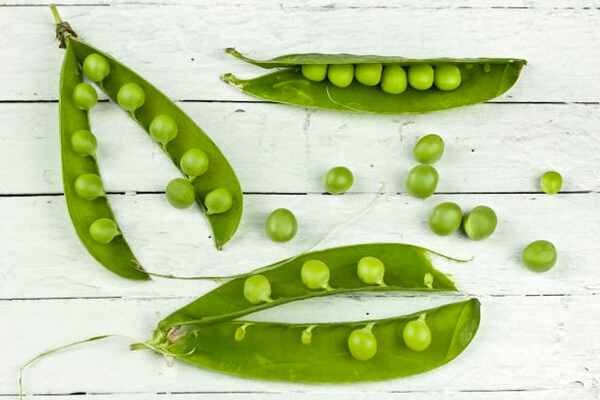
If you are an Indian, you might be familiar with these small green seeds mostly used in preparing curries and biryanis. This particular vegetable for winter can provide you with various nutrients especially, Proteins and Fiber. There are other essential nutrients such as Vitamin A & K are also loaded in Green Peas.
When you are searching for a food that has a lot of antinutrients then Green Peas can be a good option. It especially has Phytic Acid and Lectins that help prevent digestion-related problems.
Here are some dishes that you can prepare with Green Peas:
| Recipes | Calories per Serving |
|---|---|
| Peas Pulao | 529 kcal |
| Peas Kheer | 230 kcal |
| Green Peas & Tomato Soup | 61 kcal |
| Mawa Green Peas Curry | 325 kcal |
| Green Peas Dhokla | 129 kcal |
Yam (Garadu)

Similar to sweet potatoes, yam is less sweet but good in starch compared to it. Yam is an excellent source of various nutrients such as Fiber, Potassium & Manganese. Yam should be on your list of winter superfoods because it carries other vital antinutrients such as copper and Vitamin C that are needed to boost the immune system.
When we talk about other health benefits of Yam then it has anti-inflammation and anti-microbial properties that can help you in the prevention of chronic diseases.
Here are some Yam recipes that can make your day:
| Recipes | Calories per Serving |
|---|---|
| Yam Curry | 257 kcal |
| Yam Raita | 175 kcal |
| Yam Fritters | 378 kcal |
| Yam Fries | 239 kcal |
| Yam Kebab | 447 kcal |
Custard Apple (Sitafal)

One of the most loved winter fruits, Custard Apple is eaten in India in various forms. Due to its creamy and sweet flesh, the Custard Apple is used in preparing desserts and sweets throughout India.
One of the major reasons why you should have this winter food in your meal is that it can be good news for your health. Custard Apple is loaded with Fiber, Vitamins & Minerals. Also, it carries antioxidants like flavonoids, carotenoids & vitamin C.
Here are some Custard Apple recipes that are healthy and delicious:
| Recipes | Calories per Serving |
|---|---|
| Custard Apple Milkshake | 252 kcal |
| Sitafal Basundi | 416 kcal |
| Custard Apple Phirni | 480 kcal |
| Custard Apple Ice Cream | 445 kcal |
| Sitafal Rabdi | 186 kcal |
Pomegranates

Seeds of Pomegranate look like pearls or a ruby jewel. Similar to that Pomegranate can provide you various health benefits such as heart, digestive and urinary health. If you are a health enthusiast and want some winter fruits that are low in calories but high in Fiber then Pomegranate is a good choice.
Similar to other winter foods, Pomegranate also has Vitamin C and Manganese which is crucial for strengthening immunity. On the other hand, Folate and Thiamine will help in the development and growth of cells.
Here are some Pomegranate recipes for you to enjoy during the winter:
| Recipes | Calories per Serving |
|---|---|
| Pomegranate Juice | 136 kcal |
| Spinach Pomegranate Salad | 273 kcal |
| Blueberry Pomegranate Smoothie | 238 kcal |
| Pomegranate Ice Cream | 294 kcal |
| Pomegranate Sorbet | 269 kcal |
Desi Ghee

No doubt that low temperatures in Winter can bring a lot of diseases and infections such as the common cold and coughing. Consumption of Desi ghee can help you to prevent or pacify the effects of these respiratory infections.
Also, Desi ghee is loaded with healthy fatty acids and Vitamins such as Vitamins A, D & E. Moreover, Desi ghee is a great substitute for edible oils in preparing various Indian dishes. If you want to fasten your weight loss then have a spoon of Desi ghee empty stomach in the morning.
Read More about Desi Ghee
Here are some Indian recipes on which you can apply Desi ghee:
| Recipes | Calories per Serving |
|---|---|
| Desi Ghee Poori | 585 kcal |
| Desi Ghee Rice | 272 kcal |
| Ghee Paratha | 200 kcal |
| Moong Dal Khichdi | 207 kcal |
| Vegetable Biryani | 360 kcal |
Yogurt
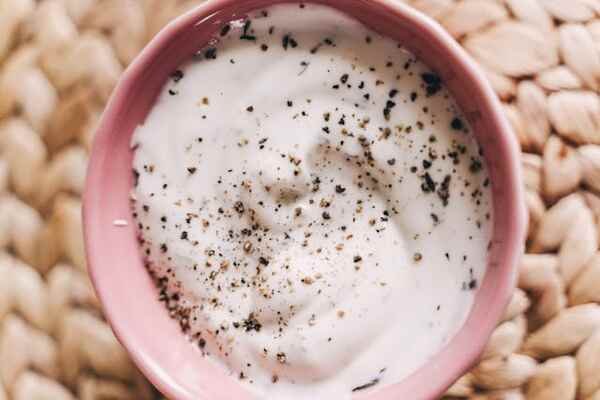
Yogurt carries probiotics that are good for gut health and can help in developing a healthy immune system. Gut health is crucial as it nullifies the effects of the development of gut microbes in the stomach.
Taking yogurt in your daily meal is beneficial for weight loss and lowering bad cholesterol. Probiotics in Yogurt are helpful in preventing unhealthy fats from entering the bloodstream and causing heart problems.
You can enjoy the benefits of Yogurt by adding these dishes to your daily meal:
| Recipes | Calories per Serving |
|---|---|
| Yogurt Sandwich | 186 kcal |
| Vegetable Yogurt Salad | 209 kcal |
| Creamy Yogurt Soup | 373 kcal |
| Cucumber & Yogurt Dip | 102 kcal |
| Spiced Mushrooms in Yogurt | 204 kcal |
Almond
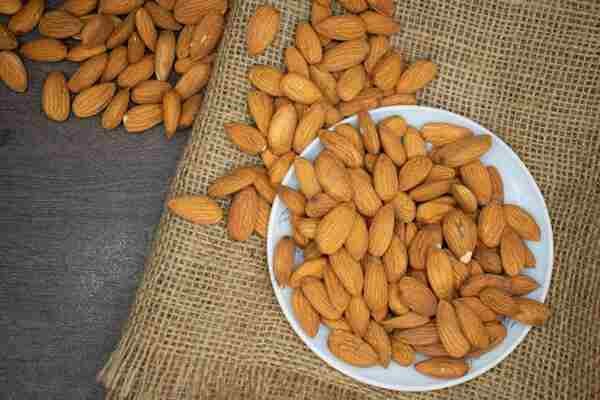
A dry fruit powerhouse, Almonds are winter foods that can provide you with multiple health benefits. The best thing about consuming Almond in winter is that it will maintain your energy levels throughout the day.
Also, Almonds are a good source of Vitamin E, a nutrient that is essential to protect your cells from free radicals. This is especially important for seniors who should consume Almonds to improve their immunity response.
Here are certain ways through which you can consume Almonds:
| Recipes | Calories per Serving |
|---|---|
| Roasted Almond Ice Cream | 465 kcal |
| Almond Soup | 352 kcal |
| Banana & Almond Protein Smoothie | 350 kcal |
| Almond Balls | 280 kcal |
| Almond & Makhana Kheer | 378 kcal |
Sesame Seeds
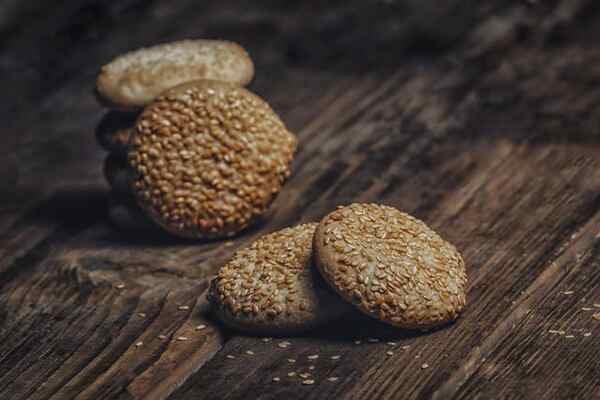
Sesame seeds are edible and oil-rich and have been used for preparing Ayurvedic medicines for centuries. Sesame seeds are used in Indian households to prepare various dishes to get health benefits during the winter season.
Sesame seeds are one of the winter superfoods that can boost your immunity because antioxidants in these seeds can reduce the effects of free radicals on cells. The presence of Zinc, Selenium, Copper, Iron & Vitamin B6 make them a food for winter.
Read more: 10 Health Benefits of Sesame Seeds (Til) for Male & Female
Here are some recipes prepared with Sesame Seeds:
| Recipes | Calories per Serving |
|---|---|
| Sesame Seed Cookies | 847 kcal |
| Sesame Seed Brittle | 558 kcal |
| Sesame Seed (Til) Laddu | 62 kcal |
| Cucumber and Sesame Seeds Salad | 105 kcal |
| Sesame Chicken | 554 kcal |
Guava

Guava is one of the winter fruits that is widely available during the season. This particular fruit can be eaten raw or in the form of juices and other beverages. For years Guava has been considered a fruit that is good for high blood pressure.
Guava is a rich source of Vitamin C, Fiber and other essential antioxidants. Not only fruit, Guava leaves are also consumed in various cultures. It is considered that these leaves can cure multiple diseases but there is no scientific evidence to prove these claims.
Here are certain recipes that you can prepare by using Guava:
| Recipes | Calories per Serving |
|---|---|
| Guava Raita | 121 kcal |
| Guava Kheer | 384 kcal |
| Guava Halwa | 476 kcal |
| Guava Chutney | 146 kcal |
| Guava Kasundi Chaat | 110 kcal |
Bajra (Pearl Millet)
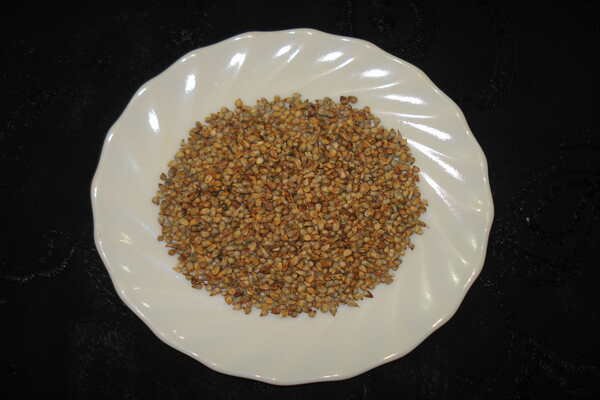
Bajra or pearl millet is one of the coarse grains that can provide you with most of the required nutrients during winter. Bajra also carries essential antioxidants like flavonoids, phenolic acid and tannins.
You can get nutrients like Vitamin B, Potassium and Magnesium by adding Bajra to your diet. Also, if you want to have Fiber in your diet then Bajra is a great option for you.
Here are some recipes that you can prepare by using Bajra:
| Recipes | Calories per serving |
|---|---|
| Bajra Chapati (medium-sized) | 119 Kcal |
| Urad Bajra Khichdi | 359 kcal |
| Bajra Potato Pancake | 378 kcal |
| Bajra Raab | 252 kcal |
| Bajra Dosa | 298 kcal |
Conclusion
Information provided on Know Your Diet helped Ashu in preparing his winter diet plan that can strengthen his immune system based on these 13 healthy foods for winter season.
His mother can prepare various Indian recipes based on these fruits and vegetables for winter to shield Ashu’s family from common winter infections and illnesses.
These Winter foods are easily available during the winter season but Ashu needs to remember that along with these foods regular exercise, proper hydration of the body and stress-free living are also essential to shield yourself from any illness during winter.




